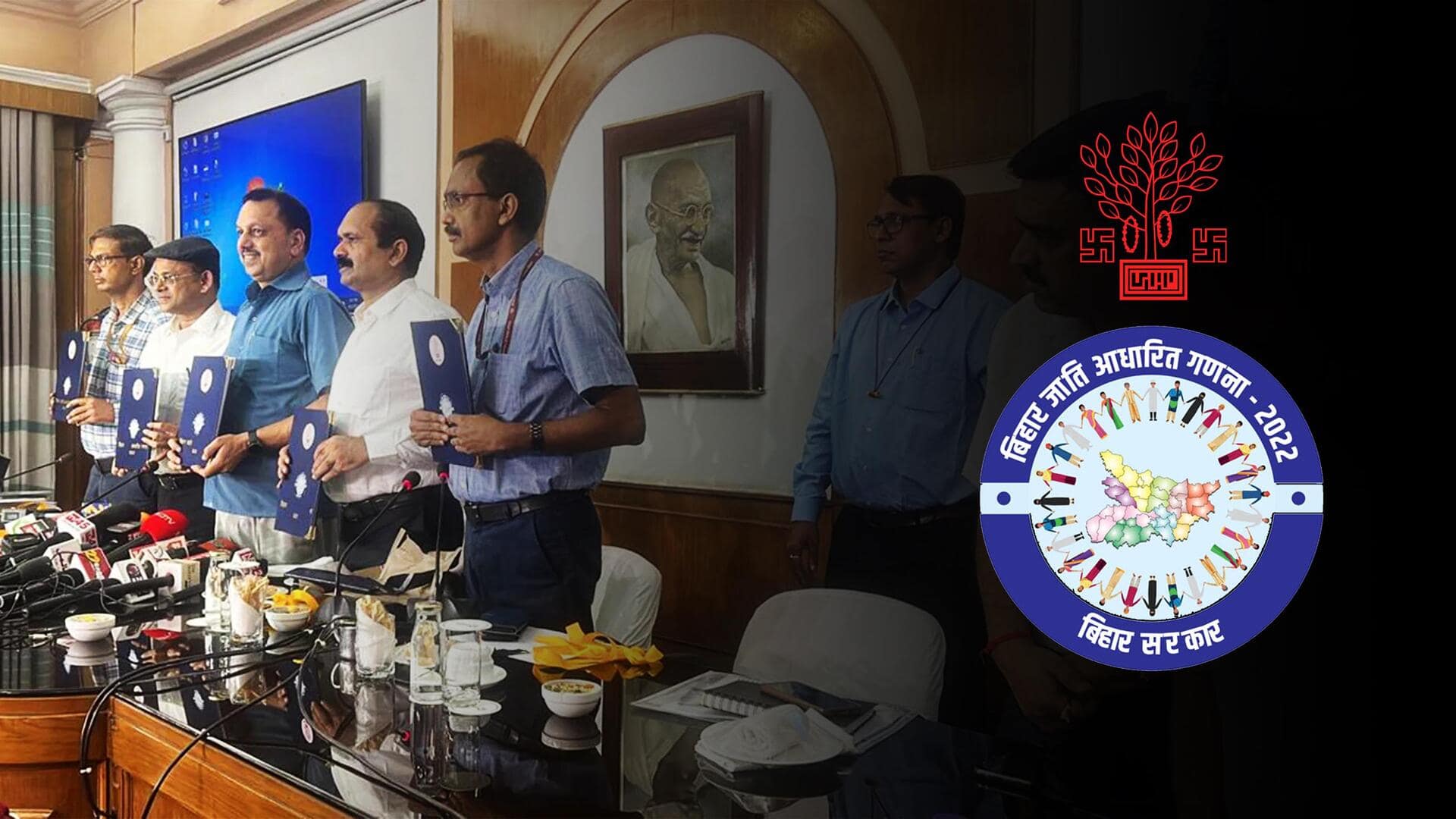
Bihar caste survey results: OBCs 63%, SC 20%, general 15%
What's the story
The Bihar government on Monday unveiled the results of its controversial caste-based survey. The findings showed that the Other Backward Classes (OBCs) account for around 63% of the state's population, while the general category, encompassing the upper castes, makes up 15.5% of the state's population, which stands at over 13 crore. Officially called the Bihar Jaati Adharit Ganana, the survey's data shows the Scheduled Castes (SCs) and Scheduled Tribes (STs) constitute 19.65% and 1.68% of Bihar's population, respectively.
Context
Why does this story matter?
The survey's results are expected to cause social upheavals. Demands for increasing the reserved quota for the OBCs are likely since it is currently capped at 27%, much lower than their share of the population. Although affirmative action emancipated oppressed caste groups to some extent, the social and political landscape still remains in the clutches of the caste system. The exercise seeks to undo centuries of caste-based discrimination by leveling the playing field for all communities.
Details
What is the community-wise strength
The Backward Classes (BCs) and Extremely Backward Classes (EBCs), which together constitute the OBCs, individually stand at around 27% and 36%, respectively. Among the OBCs, the Yadav community, to which Bihar Deputy Chief Minister Tejashwi Yadav belongs, emerged as the largest sub-group at 14.27% of the state's total population. Musahars account for 3%, while Kurmis are 2.87% compared to Brahmins and Bhumihars form 3.66% and 2.86% of Bihar's population, respectively.
What Next?
Nitish Kumar, Lalu Yadav hail data's release on Gandhi Jayanti
Bihar CM Nitish Kumar, who reportedly encountered legal obstacles and opposition from the Bharatiya Janata Party (BJP) regarding the survey, said that the report would assist in the state government's efforts to develop and uplift all sections of society. The CM, along with Rashtriya Janata Dal (RJD) supremo Lalu Prasad Yadav, hailed the release of the survey's findings on Gandhi Jayanti and stressed that further action would be taken based on this report.
Facts
Supreme Court refused to halt survey
The Supreme Court earlier refused to halt the survey, allowing the Bihar government to proceed with its plans. The Centre opposed the survey, saying only it is authorized to carry out a census, to which the Bihar government said it isn't a census but a "caste-based headcount." Moreover, the top court continues to hear petitions challenging a Patna High Court judgment that cleared the way for the contentious exercise.
Arguments
BJP says survey will create division in society
The BJP opposed the survey, alleging that it would create division in the society by promoting caste-based politics and vote banks. The survey's supporters argue the society is already governed significantly by caste politics and the rift was allegedly created first by the "upper castes" by relegating other communities to the margins and hogging all the power historically. Notably, Bihar's ruling Janata Dal (United) and RJD are primarily considered OBC parties; the BJP is claimed to be an upper-caste party.